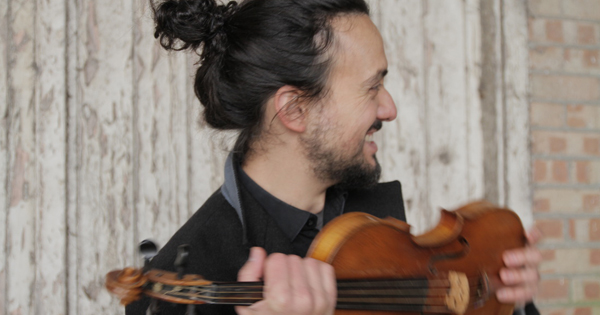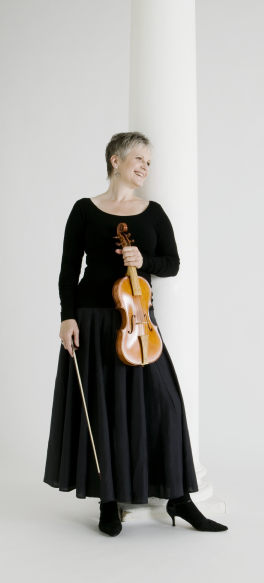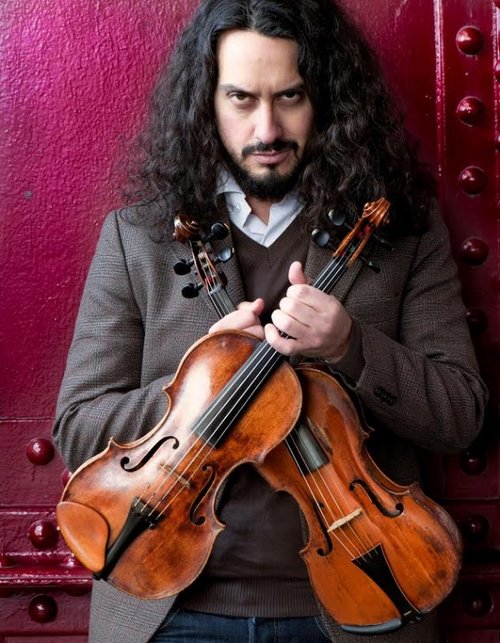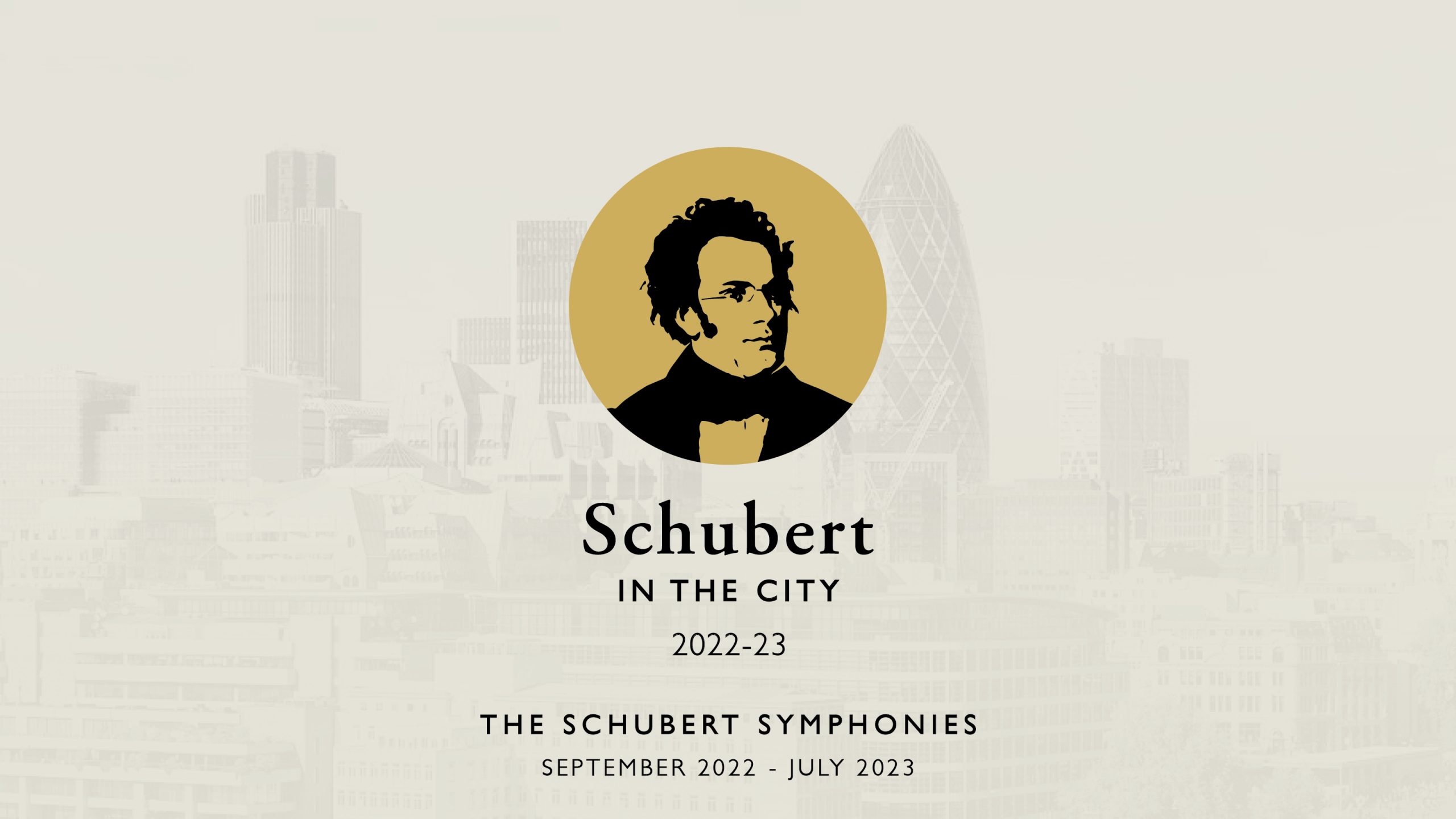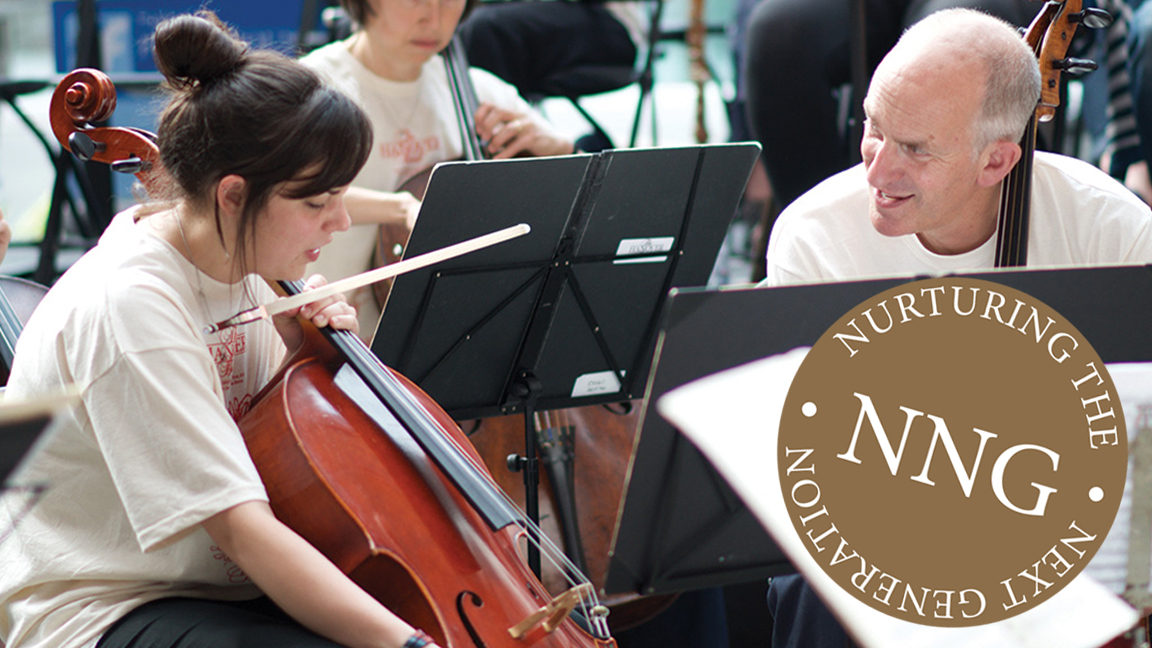Directors | Leaders
Andrew Arthur: Associate Director

A native of the UK, Andrew Arthur has established a fine, wide-spread reputation as a musician of notable versatility; highly regarded on the international concert platform and equally at home as a conductor, keyboard soloist, accompanist and continuo player, he combines all of these disciplines within his principal teaching position as Fellow, Director of Music and Director of Studies in Music at Trinity Hall in the University of Cambridge. An acknowledged specialist in the music of the Baroque and Classical periods Andrew is best known for his work in the field of historically informed performance and, alongside his educational commitments, he enjoys a busy and varied freelance career that has seen him perform extensively throughout the United Kingdom and on tour across Europe, South Africa, Singapore, Canada and the USA.
Andrew is Associate Director of the internationally renowned period-instrument orchestra, The Hanover Band, with whom he has undertaken over 200 performances, including live broadcasts for BBC Radio 3, numerous large-scale tours of orchestral, vocal and chamber repertoire and regular annual performances of J.S. Bach’s Passions and Handel’s Messiah. Recent highlights include appearances at King’s Place, London, Chichester Cathedral, Windsor Castle, St James’ Palace and the Basilica of Laren in the Netherlands.
From 2006-2014 Andrew held the position of Principal Conductor of the Euterpe Baroque Consort based in Antwerp, Belgium, during which tenure he broadcast both major works and chamber concerts on live radio for KLARA and appeared regularly at prominent festivals such as Klara in het Paleis and the Festival van Vlaanderen. Andrew is also Musical Director of his own period-instrument ensemble and vocal consort Orpheus Britannicus with whom he records for Resonus Classics and, each summer, he performs at the Carmel Bach Festival in California where he is a long-standing member of the Artistic Leadership Team and where he has served as a Director and as Principal Organist & Harpsichordist since 1999.
As a keyboard player, Andrew’s engagements encompass organ, harpsichord and fortepiano literature and he has given countless performances of concertos by J.S. Bach, Handel, C.P.E. Bach, Haydn and Mozart. In 2007, he toured the UK performing the complete solo organ works of Dieterich Buxtehude, marking the composer’s tercentenary year and he is currently involved in performing a complete cycle of J.S. Bach’s organ works in the USA. His love for chamber music and, in particular, his affinity for keyboard accompaniment has yielded a number of significant collaborations with other leading period-instrumentalists including duo-partnerships with the eminent violinists, Elizabeth Wallfisch, Theresa Caudle and Peter Hanson. As a continuo player, he has been engaged by many of the UK’s leading period-instrument orchestras and professional choirs, working under such conductors as Nicholas Kraemer, Stephen Layton, Bruno Weil, Sir Stephen Cleobury and Sir Charles Mackerras. In 2000, he participated in Sir John Eliot Gardiner’s celebrated Bach Cantata Pilgrimage with the English Baroque Soloists and Monteverdi Choir. Andrew maintains an active profile as a recording artist and his multifarious CD recordings have been met with great critical acclaim in the musical Press.
In 2019 his ensemble, Orpheus Britannicus, was nominated for an International Classical Music Award for their album of Italian, Austrian and Bohemian baroque music for trumpet and strings with the renowned baroque trumpeter, Robert Farley. More recent releases include an album of Mozart Sonatas for Violin & Fortepiano with the violinist, Peter Hanson, and J.S. Bach’s complete Concertos for Harpsichord and Strings, BWV 1052-1058 & ‘Brandenburg’ Concerto No. 5 with the Hanover Band. A further recording with Peter Hanson of Schubert Sonatas for Violin and Fortepiano is scheduled for release in 2024.
Alongside his busy concert, recording and teaching schedule, Andrew has maintained a life-long commitment to liturgical music, an interest nurtured initially through his early training as a Cathedral chorister and subsequently as Organ Scholar and Acting Precentor at Gonville & Caius College, Cambridge and as deputy Lay-Clerk at St John’s College, Cambridge. He has since held the positions of Associate Director of Music at the great Butterfield Church of All Saints, Margaret Street in London’s West End and Deputy Master of Music of the Chapels Royal, HM Tower of London. At present, amongst his diverse portfolio of musical activities in Cambridge, he works throughout the academic year training the Organ Scholars and conducting the Chapel Choir at Trinity Hall with whom, in addition to their regular schedule of services in the College Chapel, he undertakes a number of concerts, recordings and foreign tours. He is also Coordinator of the University’s Intercollegiate Organ Scholarship Scheme and Chairman of the Organ Scholars’ Forum, for which he organises an annual series of masterclasses, workshops, recital opportunities and career talks for current Organ students within the University.
Orchestral Leaders:
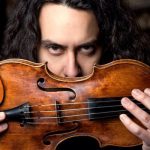 JORGE JIMENEZ JORGE JIMENEZ Leader/Violin Jorge’s passion for the violin and for music of the highest quality has lead him to direct, conduct and lead international ensembles throughout Europe. He is renowned for his thorough and exciting approach, performing music in the style and on the instruments it was intended for, from Medieval to 21st century. Jorge is founder and director of Xacona, ensemble in residence in Girton College Cambridge. Making their London debut in the Wigmore Hall in London in 2005 and having performed widely in Spain, Holland, Germany and throughout the UK. In 2008, Jorge founded Tercia Realidad for which he has created and directed programmes presented at festivals and venues such as Oude Muziek Festival in Utrecht (FF), Jardines del Real Alcazar in Sevilla, Colegio de Los Ingleses in Valladolid, Circulo de las Artes de Lugo, Universidad de Huelva, Albert Long Hall in Istanbul, Stary Sacz Festival in Poland, amongst others. Jorge is also invited to lead groups such as Forma Antiqva (Oviedo-Spain), La Tempestad (Murcia-Spain), The Retrospect Ensemble (London-UK), The Scholars Baroque Ensemble (UK), Accademia dei Desiosi (Italy), L’Harmonia del Parnas, and Solistas de la Orquesta Barroca de Sevilla, among others. Leading and conducting appointments involve guest concertmaster at the Spanish Orquesta del Principado de Asturias, the Belgian Philarmonic Orkest van de Vlaamse Opera and Capella Cracovensis in Poland as well as appearances as guest director of the new Berlin based opera company Kiez Oper and the Festival Bachowski Swidnica Orchestra in Poland. Jorge has recorded for labels such as Atlantic Records, Naxos, Hyperion, DLR-Capriccio, Lindoro, La Ma de Guido, Prometeo amongst others. As a soloist, Jorge has toured widely Europe and South America and has performed recitals in Istanbul, Sevilla, Barcelona, London, Manchester, Berlin, Madrid, Paris, Varazdin, Cochabamba. His versatility and enthusiasm for interpreting different repertoires led the Dutch foundation JumpstartJr to lend Jorge a Vincenzo Ruggieri from 1680 made in Cremona and a 1797 neapolitan J & A Gagliano. In the 2018-2019 season Jorge will appear as musical director and soloist in the production of The Globe “4Seasons” with more than 40 performances interpreting Max Richter’s version of the 4 Vivaldi Stations. Also as Musical Director of “The Secret Theatre” premiering music by Alexander Balanescu. In March, Jorge will direct the world premiere of his creation “EVENSONG: The British Vespers” at the prestigious Misteria Paschalia festival in Krakow (Poland). |
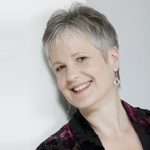 THERESA CAUDLE THERESA CAUDLELeader/Violin Theresa Caudle comes from a musical family with a particularly keen interest in renaissance and baroque music. Having studied the violin from an early age, Theresa took up the cornett at the age of thirteen, becoming one of the foremost performers on it whilst still a teenager and a pioneer in the revival of this instrument, being the first person to play it at a professional level with the authentic, acorn shaped mouthpiece. Whilst still at school she took part in many professional concerts and recordings with groups such as Musica Reservata, The William Byrd Choir and The Academy of St. Martin in the Fields, and celebrated leaving school by going to Berlin the next day to play in a European Union broadcast performance of Monteverdi’s “L’Orfeo” in the Berlin Philharmonic Hall! Theresa then pursued her studies on the violin at The Guildhall School of Music and Drama where she was awarded a scholarship to study the baroque violin, and was the first person to receive a diploma on that instrument. Theresa regularly leads The Hanover Band, and plays with The London Handel Orchestra and The Monteverdi String Band. However she is now very active running and directing her own ensemble Canzona, formed in 1992, both in chamber music concerts and in collaborations with choirs. With this ensemble she has been proud to lead many performances of the great baroque masterpieces by Bach and Handel for conductors such as Harry Christophers, Stephen Layton and Brian Kay, and to play with many wonderful singers such as James Bowman, Emma Kirkby and Peter Harvey. In addition to leading Canzona, Theresa has led many other orchestras such as The Sixteen, English Touring Opera’s baroque orchestra The Old Street Band,The Drottningholm Court Theatre Orchestra and the Polish group, L’arte dei Suonatore. She is also the leader of Orpheus Britannicus, resident ensemble at Trinity Hall College, Cambridge. Theresa enjoys teaching at all levels and ages and has several private pupils. She has coached at The Royal Academy of Music and at Birmingham and Leeds Universities and has acted as a specialist examiner for final recitals at The Royal Academy and Royal College of Music. She runs several courses in baroque playing styles at Benslow Music Trust in Hitchin and at Jackdaws near Frome, and is artistic director of “Baroque Week”, now held at Queen Anne’s School, Caversham. In 2004 she was one of the professors on “The Winter School” course for baroque music in Dubrovnik, which gathered students from throughout the former Yugoslavia. That visit led to a fruitful collaboration with the leader of the Croatian Baroque Ensemble and Theresa has revisited Croatia several times since to direct programmes with this ensemble and to coach students at the Academy in Zagreb in baroque performance practice. Although Theresa never entirely forsook the cornett, recently she has been devoting more time and energy to it; her recording of seventeenth century Italian sonatas “Violino o Cornetto”, on which she plays both cornett and violin, was released on the Nimbus Alliance label in 2010. |
 JULIA KUHN JULIA KUHNLeader/Violin German violinist Julia Kuhn is an internationally sought after concertmaster, chamber musician, soloist, and teacher. She has appeared as leader and soloist with the Orchestra of the Age of Enlightenment (OAE), The English Concert, the Irish Baroque Orchestra, The Hanover Band, The Mozartists, the Orquestra Barroca Casa da Música Porto, among others. She is principal 2nd violin for the Academy of Ancient Music, guest principal 2nd violin for Austrian chamber orchestra Camerata Salzburg and is a core member of the Orchestra of the Age of Enlightenment. Kuhn is artistic director for the St Blasius Early Music Summer Concert Series in Kaufbeuren, Germany. She is the OAE’s Night Shift concert series curator for the 23/24 season. Kuhn is an Associate of the Royal Academy of Music London (ARAM), an award given to former students who contribute significantly to the music profession. Kuhn is a dedicated teacher and has taught masterclasses and workshops on both modern and baroque violin at Oberlin Conservatory of Music, USA, the Royal Academy of Music, UK, at the 2023 Musicus Festival Hong Kong, the 41st Oficina de Música de Curitiba 2024, Brazil, and the annual Kaufbeuren Masterclasses for Young Musicians, Germany, among others. She is a tutor for the Irish Baroque Orchestra apprenticeship scheme students, and was a tutor for The English Concert’s worldwide online masterclass “One-to-one Session” project. She regularly plays as ensemble leader for the Orchestra of the Age of Enlightenment’s education and outreach projects. Kuhn was adjudicator for the 2022 Mica Comberti Prize competition for the performance of works by J.S. Bach at the Royal Academy of Music, London. She was Teaching Assistant for the violin studio of the music faculty at Stony Brook University, USA. Her experience and knowledge of historically informed performance practice spans from the 17th to the early 20th century, and she researches the music of politically ostracized composers of the 20th century. Future projects include further engagements as concert master with the Irish Baroque Orchestra and The Mozartists, concerts with the Hanover Band String Quartet, a complete Beethoven violin sonata concert cycle with pianist Carolin Oltmanns, as well as solo and chambermusic recitals in Germany, UK, and Italy. Kuhn holds an MA with distinction in baroque violin from the Royal Academy of Music, London, and a BA with distinction in Violin Performance from the Mozarteum University, Salzburg. Further, she studied violin at Stony Brook University, USA, with a focus on research of the music of politically persecuted composers of the 20th century. Her teachers included, among others, Simon Standage, Prof. Harald Herzl and Prof. Philip Setzer (Emerson String Quartet). |



